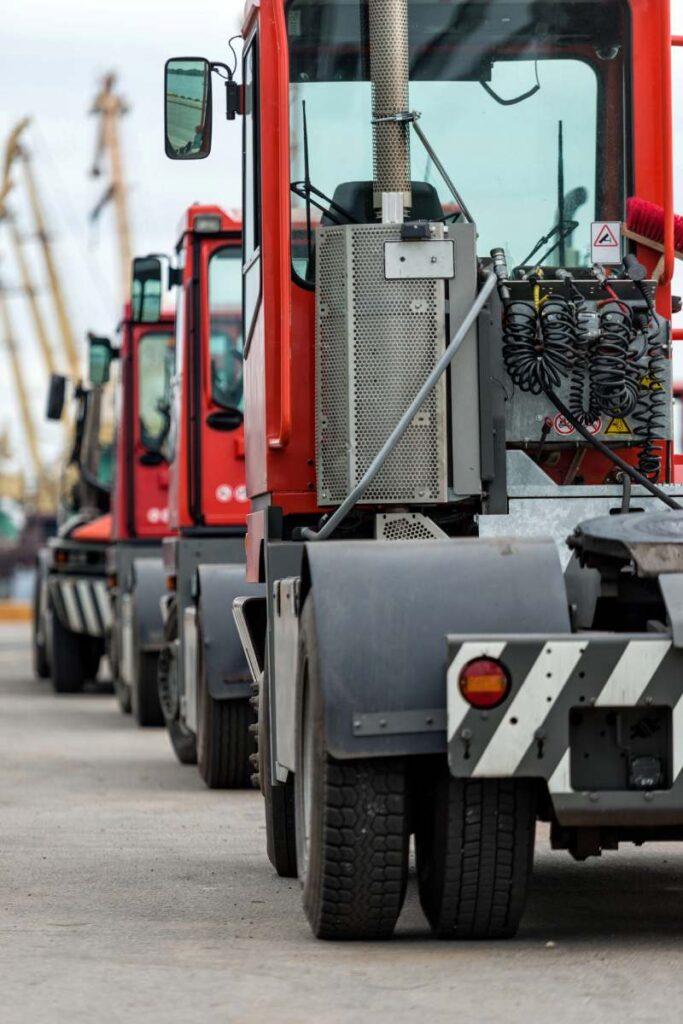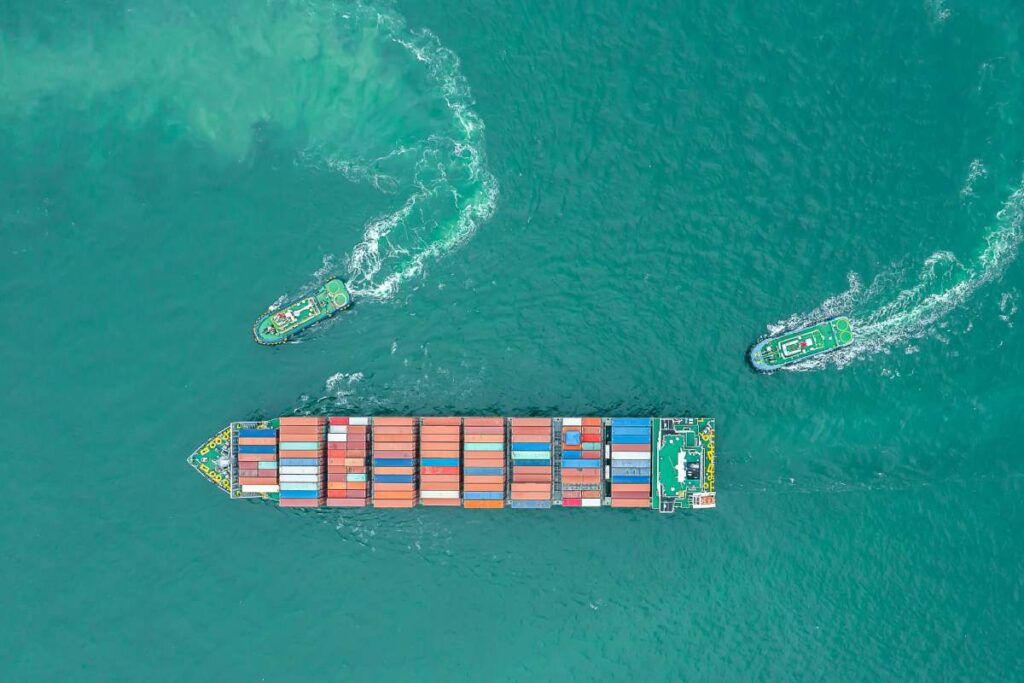Navigating the ins and outs of shipping products can be pretty overwhelming, especially with all the fancy terms and business jargon involved. This guide is here to break it down for you by explaining the differences between shipping lines and freight forwarder companies.
So, shipping lines mainly operate ships for sea transportation, while freight forwarders work as middlemen, offering a bunch of logistics services to make sure your goods move smoothly across different types of transportation. Knowing these distinctions can help you make smart choices when picking partners for your shipping needs, ensuring your products get where they need to go without a hitch.
Related article:
What are freight forwarders?
Freight forwarders are intermediaries in the shipping and logistics industry. They facilitate the transportation of goods from the manufacturer or producer to the final destination, which could be a distribution centre, warehouse, or directly to the end customer.
Their responsibilities typically include:

- Booking Freight: They arrange for the transportation of goods via various modes like air, sea, rail, or road, depending on the requirements of the shipment.
- Documentation: Freight forwarders handle the necessary paperwork involved in international shipping, such as customs documentation, bills of lading, and export/import permits.
- Customs Clearance: They assist with customs clearance procedures, ensuring that goods comply with all applicable regulations and facilitating the smooth passage of shipments across borders.
- Cargo Insurance: Freight forwarders often offer cargo insurance to protect against loss or damage during transit.
- Warehousing and Storage: Some freight forwarders also provide warehousing and storage services for goods awaiting transportation.
- Tracking and Communication: They keep clients informed about the status of their shipments and provide support throughout the transportation process.
Overall, freight forwarders play a crucial role in streamlining the movement of goods across the supply chain, especially in international trade where navigating complex regulations and logistics can be challenging for businesses.
What are the shipping lines?
Shipping lines, also known as ocean carriers or container shipping companies, are companies that operate vessels for transporting goods via sea routes. They are a vital component of global trade, responsible for moving the majority of the world’s cargo across oceans. Shipping lines typically offer scheduled services between various ports worldwide.
Key characteristics of shipping lines include:
- Vessels: Shipping lines own or charter vessels of various sizes and capacities to transport cargo across oceans. These vessels can range from small feeder ships to massive container ships capable of carrying thousands of TEUs (twenty-foot equivalent units).
- Routes and Networks: Shipping lines establish routes and networks that connect major ports and trade hubs around the world. They operate on fixed schedules, offering regular services to facilitate the movement of goods between different regions.
- Containerization: Most shipping lines utilize containerized cargo transport, where goods are packed into standardized containers for efficient loading, unloading, and transportation. This method has revolutionized the shipping industry, enabling faster turnaround times and reducing costs.
- Alliances and Partnerships: Shipping lines often form alliances or partnerships with other carriers to optimize vessel utilization, improve service coverage, and enhance operational efficiency. These alliances allow them to share resources and cooperate on route planning and capacity management.
- Freight Rates and Contracts: Shipping lines determine freight rates based on factors such as cargo volume, distance, demand, and fuel costs. They negotiate contracts with shippers and freight forwarders for the transportation of goods, often offering different service levels and pricing options.
- Technology and Tracking: Many shipping lines invest in technology to enhance tracking and visibility throughout the supply chain. They provide online platforms and tools that allow customers to monitor the status of their shipments, track vessel schedules, and manage documentation electronically.
Overall, shipping lines play a crucial role in facilitating global trade by providing reliable and efficient transportation services for a wide range of goods, from raw materials to finished products.

The key differences
The primary difference between a freight forwarder and a shipping company (or shipping line) lies in their roles and functions within the logistics and transportation industry:
Freight Forwarder
- Intermediary Role: Freight forwarders act as intermediaries between shippers (manufacturers, exporters, or importers) and transportation providers (such as shipping lines, airlines, trucking companies, etc.).
- Comprehensive Services: They offer a comprehensive range of logistics services, including arranging transportation, managing documentation, customs clearance, cargo insurance, warehousing, and sometimes even packaging and labelling.
- Customized Solutions: Freight forwarders tailor their services to meet the specific needs of their clients, providing customized solutions for shipping goods domestically or internationally.
- Single Point of Contact: They serve as a single point of contact for clients, coordinating all aspects of the shipment and ensuring smooth logistics operations from origin to destination.
Shipping Company (or Shipping Line)
- Carrier Role: Shipping companies operate vessels (ships) for transporting goods via sea routes. They are primarily responsible for the physical transportation of cargo across oceans.
- Scheduled Services: Shipping lines offer scheduled services between various ports worldwide, establishing routes and networks to facilitate the movement of goods on fixed schedules.
- Containerized Transport: Most shipping lines specialize in containerized cargo transport, utilizing standardized containers for efficient loading, unloading, and transportation.
- Freight Rates and Contracts: Shipping lines determine freight rates based on factors like cargo volume, distance, demand, and fuel costs. They negotiate contracts with shippers and freight forwarders for the transportation of goods via sea routes.
- Operational Focus: While freight forwarders focus on providing logistics services and managing the end-to-end shipment process, shipping companies concentrate on vessel operations, maintenance, and ensuring the timely and safe delivery of cargo.
In summary, freight forwarders offer a broader range of logistics services and act as intermediaries between shippers and transportation providers, whereas shipping companies specialize in the physical transportation of cargo via sea routes and operate vessels for that purpose.
Which goods are suitable for freight and which are for shipping?
Both freight and shipping are methods of transporting goods, but they differ in the mode of transportation and the types of goods they typically handle:
Freight
- Mode of Transportation: Freight can refer to goods transported by various modes of transportation, including air, sea, rail, or road.
- Suitable Goods: Almost any type of goods can be transported as freight, depending on the specific requirements of the shipment and the chosen mode of transportation. Freight forwarders typically handle a wide range of goods, including:
- Perishable goods: Fresh produce, seafood, pharmaceuticals, etc.
- Hazardous materials: Chemicals, flammable liquids, radioactive materials, etc.
- General cargo: Consumer goods, electronics, machinery, textiles, etc.
- Oversized or heavy cargo: Industrial equipment, machinery parts, vehicles, etc.
- Flexibility: Freight transportation offers flexibility in terms of choosing the most suitable mode of transportation based on factors such as cost, speed, reliability, and the nature of the goods being transported.
Shipping
- Mode of Transportation: Shipping specifically refers to the transportation of goods by sea using ships or vessels.
- Suitable Goods: Shipping is well-suited for transporting large volumes of goods over long distances, particularly bulky or heavy items that are not time-sensitive. Goods commonly transported by sea shipping include:
- Bulk commodities: Grain, coal, ore, oil, chemicals, etc.
- Containerized cargo: Finished goods, raw materials, consumer goods, etc., packed in standardized containers.
- Vehicles: Automobiles, trucks, heavy machinery, etc.
- Project cargo: Large, oversized, or specialized equipment for construction, energy, or infrastructure projects.
- Economies of Scale: Shipping is often preferred for transporting large volumes of goods due to economies of scale associated with sea transportation, especially for long-distance international trade routes.
The suitability of goods for freight or shipping depends on factors such as transportation requirements, the nature of the goods, the distance to be covered, and considerations of cost, time, and reliability. Both freight and shipping offer options for transporting a wide range of goods, but the choice between them depends on specific logistics needs and preferences.

How to choose the right freight forwarder and shipping line company?
Choosing the right freight forwarder and shipping line company is crucial for ensuring smooth and efficient transportation of goods. Here are some steps to help you make informed decisions:
- Assess Your Needs:
- Determine your transportation requirements, including the type of goods, volume, destination, and desired timeline.
- Consider any special handling requirements, such as temperature control for perishable goods or hazardous materials handling.
- Research and Compare:
- Conduct thorough research on freight forwarders and shipping lines that operate in your desired routes and regions.
- Look for companies with experience and a good reputation in handling similar types of cargo and serving your industry sector.
- Check Credentials and Certifications:
- Verify the credentials and certifications of freight forwarders and shipping lines, such as licenses, accreditations, and memberships in industry associations.
- Ensure they comply with relevant regulations and standards, especially for international shipping and customs clearance.
- Evaluate Services Offered:
- Assess the range of services offered by freight forwarders and shipping lines, including transportation modes, logistics solutions, documentation support, customs clearance, tracking capabilities, and customer service.
- Look for companies that offer comprehensive services tailored to your specific needs.
- Request Quotes and Proposals:
- Contact multiple freight forwarders and shipping lines to request quotes and proposals for your shipment.
- Compare pricing, service offerings, transit times, and terms and conditions to evaluate the value proposition of each company.
- Consider Reputation and Reviews:
- Seek recommendations from industry peers, partners, or online forums to gauge the reputation and reliability of freight forwarders and shipping lines.
- Read reviews and testimonials from previous customers to understand their experiences and satisfaction levels.
- Communication and Support:
- Evaluate the communication channels and responsiveness of freight forwarders and shipping lines.
- Choose companies that provide proactive communication, timely updates on shipment status, and responsive customer support.
- Visit Facilities and Meet Representatives:
- If possible, visit the facilities of shortlisted freight forwarders and shipping lines to assess their infrastructure, equipment, and operational capabilities.
- Meet with company representatives to discuss your requirements, ask questions, and address any concerns you may have.
- Negotiate Contracts and Terms:
- Negotiate contracts and terms with selected freight forwarders and shipping lines, ensuring clarity on pricing, services, liabilities, insurance coverage, and dispute resolution mechanisms.
- Review contracts carefully before signing to avoid any misunderstandings or discrepancies.
Thankfully, with today’s technology, figuring out the right shipping options for your goods is simpler than ever. You can easily compare free freight quotes and kickstart the process. If you prefer a hassle-free approach, consider using a freight forwarder like FillMe FREE freight quotes in Australia. They handle all the nitty-gritty details, ensuring your goods reach their destination smoothly and efficiently, leaving you free to focus on other aspects of your business.



